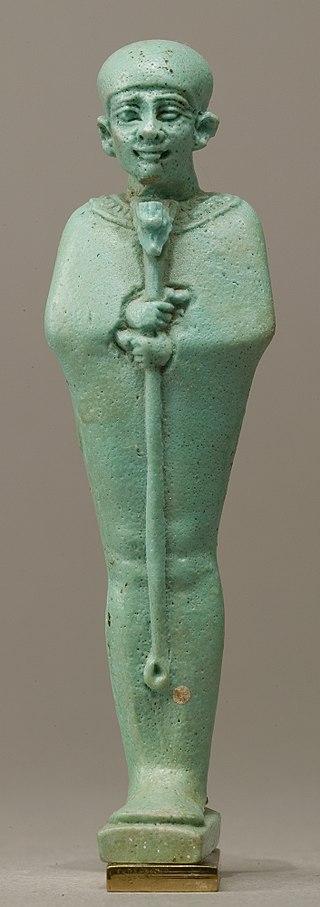Note: This article has been excerpted from a larger work in the public domain and shared here due to its historical value. It may contain outdated ideas and language that do not reflect TOTA’s opinions and beliefs.
From Fire from Strange Altars by J. N. Fradenburgh, 1891.
When the Thinitic kings made Memphis their seat, they carried with them the worship of the Osirian gods, but adopted Ptah, the chief deity of the new locality, who reached great prominence. When his worship was neglected, as seems to have been the case at one period, the kings were hated and their monuments desecrated. The reputation of Ptah extended with the growth and power of the Old Kingdom of the first dynasties.
The Greeks compared him with Hephaistos, the god of cosmic fire. His name is interpreted as meaning "he who forms." As the invisible and hidden god, his symbol was a mummy, concealed in its sarcophagus. He procreates all things. The gods come from his mouth, and men from his eye. He was, in early times, the god of order, justice, righteousness, and truth, and came to give laws to men, and was a lover of good. He was closely connected with Ma, the goddess of righteousness. It must have been at a much later period, when he became confounded with the sun-god, that he could be called "the lord of the long times, the honorable, the golden, and the beautiful."
Ptah has but one son mentioned in the Egyptian literature, Imhotep by name. "He is a personification of the sacrificial fire, and of the worship regulated by the sacred book, and he is always represented with this book upon his knees; and the texts designate him as the first of the Cherhib, a class of priests who were at the same time choristers and physicians; for the sacred hymns were believed to have a magical power as remedies."
Together with Ptah, two goddesses, Sechet or Bast and Neith, were prominent in the worship of Lower Egypt. Neith had her chief seat at Sais, and the Libyans were especially devoted to her cult. Sechet was a favorite among the Arab tribes, and had her chief seat at Bubastis, where, under the name of Bast, she was held in high honor. We also meet with Chnum, the god of the cataracts. There will be further mention of these divinities in a succeeding portion of this chapter.
Fradenburgh, J. N. Fire from Strange Altars. Cranston & Stowe, 1891.
About TOTA
TOTA.world provides cultural information and sharing across the world to help you explore your Family’s Cultural History and create deep connections with the lives and cultures of your ancestors.


